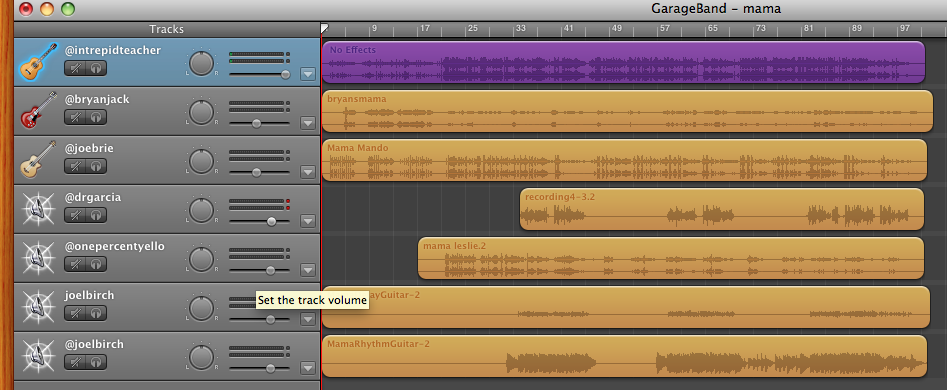When I first start teaching DC101 a few weeks ago, I had no idea what to expect. I could not have anticipated the level of reservations and anxiety teachers would have about writing. I didn’t not realize the effect that past experiences many of our staff would bring to the table in terms of writing and sharing, furthermore I never imagined the influence these experiences would have on how they view digital citizenship. It goes without saying, that I have learned a lot in the last three weeks.
In short, I am beginning to see that for many teachers with a limited understanding of connected learning and life online, opening up and publicly sharing (blogging) is a much larger obstacle to overcome, than the fear of insufficient technical skills needed to run a blog. The latter are pretty basic and can be learned with some time and training, but the paradigm shift of understanding online life is a much bigger issue. It’s as if people are realizing that running a blog is not very complicated, but writing one is. Perhaps, the early development should focus on writing, on learning, on sharing. Leave the tech stuff for phase two.
I am seeing that many people still struggle with the notion that their voice matters. People feel that they don’t need to add to the noise. Why would anyone care about what I have to say? Is a common question I see. I get the sense that due to time, stress and administrative expectations, the notion of reflections, sharing and writing about their teaching feels superfluous. What if we gave teachers time to blog throughout their work week? We spend so much time and energy on reports, what if teacher reflection and blogging was considered as important to the administration of schools? What if we allowed our teachers the freedom to be learners? Created supportive communities of fellow teachers, who could blog during school time? What if this wasn’t considered a luxury, but an expectation?
At our school, we are trying to work toward a learner based coaching model. We want to encourage inquiry from our teachers as well as our students. In the realm of technology, we are trying to move away from the traditional notion of training and moving towards a more holistic understanding of how technology influences our personal and professional lives. We are not interested in transferring technology skills, but of building a culture of sharing and learning. An open community, where all members have a space (blogs), where they can feel comfortable collaborating and sharing ideas, creating content, communicating and connecting to each other through the use of various tools on a platform we are calling e-hub, which at this stage consists of a system wide multi-user WordPress platform and The Google suite for education.
When I began, I thought that DC101 would be a way to give staff members the tools they needed to access e-hub, but half-way through I am realizing that we need to start with understanding the why first. Once we have e-hub up and running, and every knows how to access it, then what? Trouble is that I find myself in a chicken-and-egg scenario: We need blogs and a basic understanding of how blogs connect ideas and people to build community and culture, but we cannot understand the power of these networks without using the blogs to connect people.
 cc licensed ( BY ND ) flickr photo shared by US Embassy New Zealand
cc licensed ( BY ND ) flickr photo shared by US Embassy New Zealand
Having said that, things are going well. The conversations are starting. People are feeling challenged I hope, and they are having conversations about things like Creative Commons for the first time. It will, however, be a long road. Culture is not created overnight. This understanding is important for schools hoping to implement blogging and expecting kids and teachers to magically use them authentically. It is not very difficult to set up a few class blogs, or even to implement blogging school wide. It is also not very difficult to train students and teachers to write posts, add hyper-links, add photos, video, etc… but creating an organic system where teachers openly share their ideas without fear, where they read the work of their peers and comment, collaborate and create together is a much more time consuming situation. If you are interested in blogging with your class or in your school, you may want to have some pretty big discussions before hand.
It is clear that we can create blogs as portfolios and have students upload post-after-post of homework. We can create class blogs, which teachers use as administrative tools to share curriculum with parents and students, but is this enough? Is this blogging? Of course not this is content management. You might as well use Moodle or Studywiz. Blogging has to be more than content management. So what next?
I am not sure. We have only been doing this for two months. I should be pleased with what we do have so far, but as always I want it all and I want it now, to quote Jim Morrison. Perhaps, you can share some of your ideas. What does blogging culture mean to you? What can it look like at a school? What do you do at your school that promotes a culture of sharing? How do you get teachers and students to write authentic posts, not just upload assignments? As you can see there are many questions, but very valid ones I think, before we assume that since we have blogs at school that we are really blogging.




